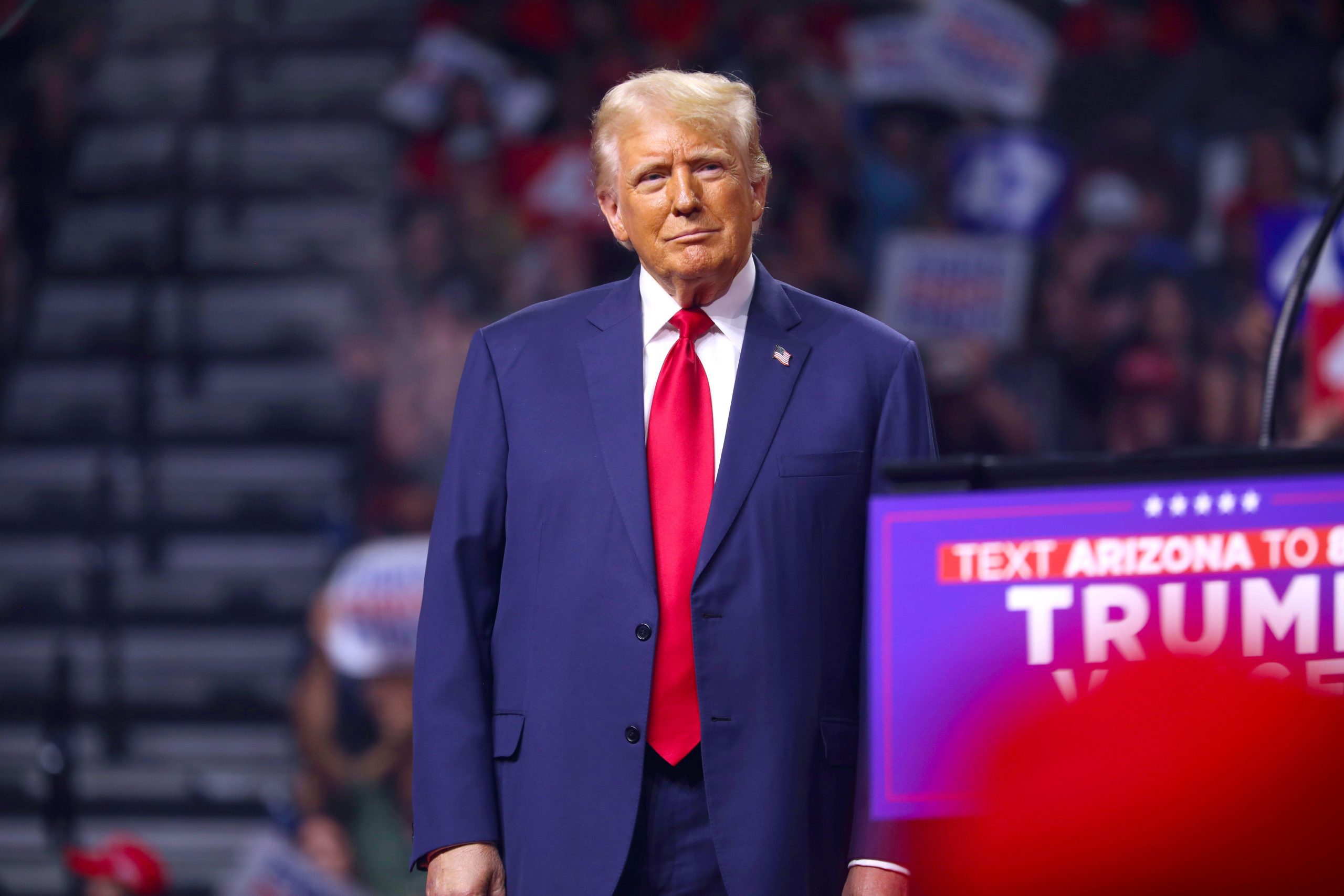Waking up to today’s news that Donald Trump has been re-elected as president of the USA is deeply troubling. Despite what he claims, Trump is no poster boy for free speech. We at Index have many grave concerns about what another four years under him could mean for the USA and the world.
The first of these concerns is media freedom. His record on this is worrying. During his last term as president, Trump constantly appeared on our website and in our magazine. David E. McCraw, the New York Times deputy general counsel, spoke to us about the physical violence journalists were facing in the USA as a result of Trump; the great-granddaughter of Soviet leader Nikita Khrushchev, Nina Khrushcheva, wrote about his lashing out at various mainstream media with labels like “enemy of the people” and even said life in the Soviet Union was better in this regard:
“Once a Soviet citizen, I’ve been checking my surroundings. Am I living in cosmopolitan New York? Am I back in a homogeneous Moscow reading the Pravda headlines about the drummed-up victories of the communist state and the denunciations of the enemies who plot to take it down? In fact, when I was growing up in the 1970s, not even Pravda used such ominous language for Kremlin critics.”
Alas if Trump is to be taken at his word, his first four years in power were simply the dress rehearsal before the real show. Project 25, the Republican Party’s 900-page policy wish-list, includes plans to seize journalists’ emails and phones, while campaign-trail Trump frequently railed against the media, threatening to arrest those who disparage him and to strip television networks of their broadcast licenses. This might partly explain why Jeff Bezos crushed the Washington Post’s endorsement of Kamala Harris. Self-censorship is after all self-preservation.
This Sunday Trump said he wouldn’t have minded if journalists had been shot during his assassination attempt.
Such language incites. Reporters have spoken about feeling very unsafe at Trump rallies. Such language is also not limited to the media. His desire to throw people in jail extends to his detractors more broadly and is often personal. His campaign team claims his “firing squad” comment towards former US Republican lawmaker Liz Cheney has been taken out of context. Perhaps. Still there is no denying that he launched a vicious attack, solely because she was on Team Kamala.
This leads onto our broader concerns for freedom of expression in the USA. Minority voices will be further marginalised. So too will the voices of those who simply wish to criticise Trump or pull up his administration when it falls short. Even the best administrations fall short. Never mind ones staffed with conspiracists and liars. The implications are terrifying.
All the while Trump’s particular style of “noisy” leadership feels structurally built to erode USA democracy. In Umberto Eco’s essay Censorship and Silence, the Italian twentieth century scholar argued that too much information was an intentional tactic. Noise becomes an instrument of censorship and a tool of totalitarianism. It drowns out what we should be hearing. Trump likely knows this; his constant chatter is, many believe, done on purpose, the chaos it creates aimed at frustrating and distracting the public.
This does not just concern people in the USA. It concerns all of us, especially anyone living under dictatorships. Autocrats benefit from our distraction. Is it any surprise that, with our attention fixed on Israel-Palestine and indeed the USA, Saudi Arabia has carried out the highest number of executions this year since 1990 and that few have spoken about this?
Moving forward our fears deepen for those who live in totalitarian states and we fear too for people in Ukraine, the Baltics and in the Middle East given Trump’s allegiances in those regions.
Trump was voted in – but concerns have been raised about how fair the election was, starting with accusations once again of Russian meddling, the fact that one of Trump’s biggest supporters (Elon Musk) runs a highly influential social media platform and offered money to people voting in swing states, and stories of ballot boxes being set on fire. But in the grand scheme of elections, where countries like North Korea don’t hold any, it is undeniable that the USA’s 2024 ones were closer to free and fair.
That his election was democratic provides no solace, however. The world is not short on examples of autocrats who received a popular vote at the start. Victor Orban. Narendra Modi. Recep Tayyip Erdoğan. A vote is only one function of a democratic system and it is all too often imperfect.
As newspaper columnists address what led to this moment we pledge to work tirelessly to hold Trump to account on free speech.
When Index was launched in the early 1970s our mission was always to look at censorship everywhere and to not assume that we in the so-called West will have freedoms tomorrow just because we have them today. In the decades since we have tirelessly reported on and promoted free expression. We’ve successfully campaigned to change laws, to free prisoners of conscience, to get people off death row. We will continue to work in this way and we will report on every violation to free speech that Donald Trump and those in his government make. We will do our best to ensure the right to free expression does not bear the brunt of his presidency.
We know we need to make the case for free speech even stronger too. It is simply not good enough that the loudest voices talking about free speech are the very voices that want to dismantle it.
Today is a day of despair. It is also a day for collective action, for those of us who genuinely care about free speech to come together to protect and promote it. Please join us.
Donate to Index today here
Subscribe to the magazine here
Sign up to the Index weekly newsletter via our homepage here






